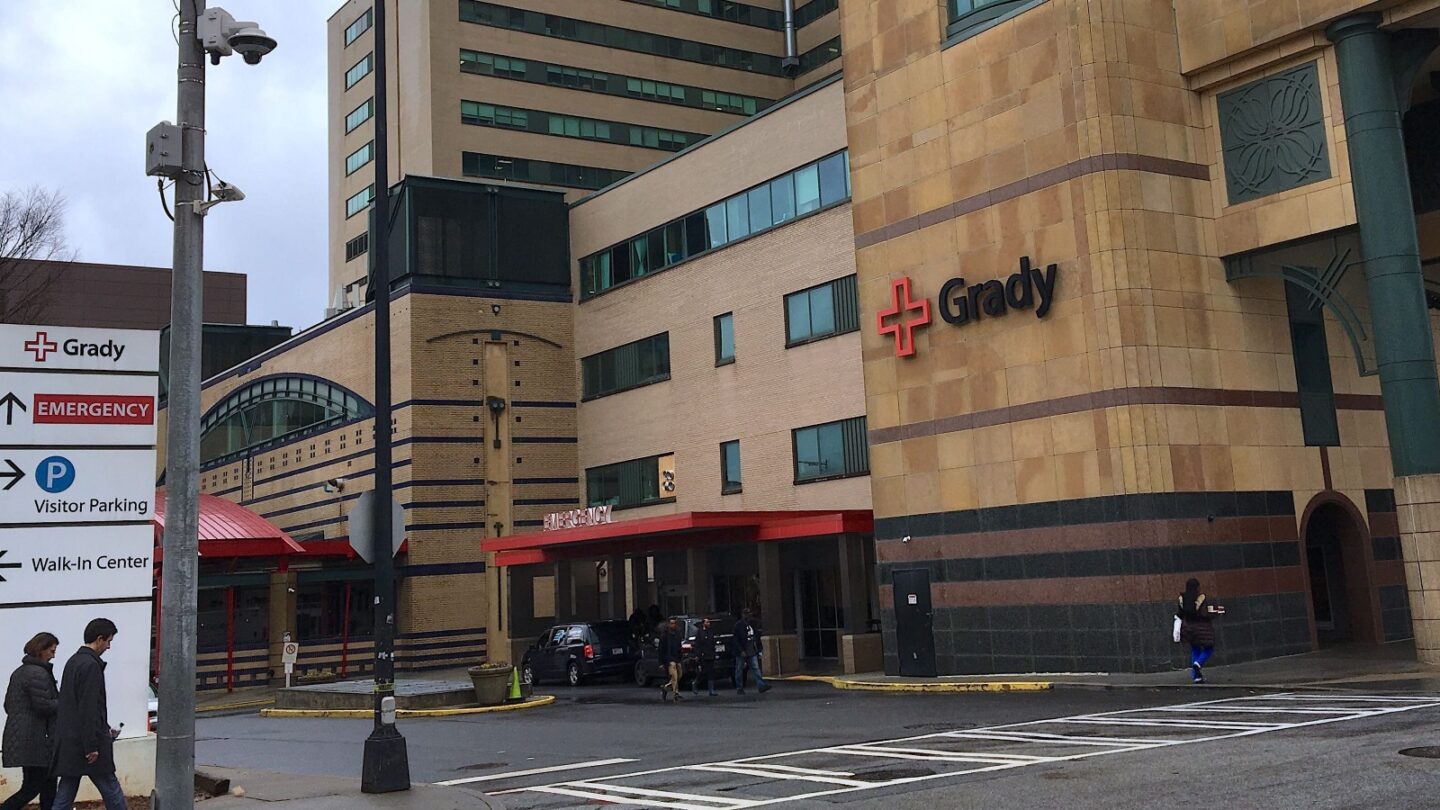Reduced Capacity At Grady Memorial Hospital Ripples Through Region’s Medical System

In early December, a water pipe break wreaked havoc at Atlanta’s Grady Memorial Hospital, flooding multiple floors and damaging hundreds of beds. For a time, Grady was forced to divert all its ambulance traffic to other facilities. The emergency room still has not returned to normal operations.
Lisa Hagen / WABE
For over a month, one of the region’s largest emergency rooms has been operating at a reduced capacity.
A water pipe break wreaked havoc at Grady Memorial Hospital in Atlanta in early December, flooding multiple floors and damaging hundreds of beds. For a time, Grady was forced to divert all its ambulance traffic to other facilities.
Even now, the emergency room, which normally handles more than 400 visits a day, has not returned to normal operations. It’s only accepting trauma, stroke and burn patients.
The entire situation has caused ripples in other parts of the area’s emergency medical network.
“We’ve seen higher ER volumes in December. We’ve seen higher inpatient volumes in December,” said Ed Lovern, chief operating officer of Piedmont Atlanta Hospital.
Lovern says his facility, which is just a few miles from Grady, took in eight patient transfers from the hospital in the days immediately after the water pipe break.
He estimates Piedmont Atlanta’s ER volume last month was up 12% from the year before, but says that could be for a number of reasons: an earlier than normal flu season, seasonal fluctuations.
“There are a lot of factors that go into that,” Lovern said. “We know there’s been some impact from Grady. We just don’t know how much there’s been.”
He says that higher traffic has increased ER wait times, which could lead Piedmont Atlanta to bring in more staff, but that neither are out of the ordinary for this time of year.
Other area hospitals, such as those run by WellStar Health System and Emory Healthcare, reported increased patient volumes. But officials also stressed it was hard to blame that on Grady’s reduced capacity.
“We have experienced high ER volumes,” said a spokesperson for Emory Healthcare. “Although it is difficult to differentiate what is specifically the result of the impact to Grady versus increased volumes associated with high flu prevalence and seasonal hospital visits.”
Still, one thing has changed in the last month: emergency medical service providers have increased their coordination.
Terence Ramotar is with American Medical Response, which provides EMS to DeKalb and North Fulton counties. He says, in the wake of the water pipe break at Grady, local paramedics have inserted a new step into their workflow.
“On each 911 call when the patient is in the back of the ambulance and ready to be transported, our paramedics will make a phone call,” he explained.
That call goes to Grady, which then tells paramedics which local ER has the capacity to take patients.
American Medical Response normally sends about 50 patients a day to Grady. Ramotar says the increased management of local EMS providers has kept operations running smoothly.
“That ability to coordinate where patients go and someone having an overview of the entire system and directing patients to the best facility is working really well,” he said.
Grady runs the call center with support from the Georgia Department of Public Health, which helped the hospital coordinate with other facilities and EMS providers in the immediate aftermath of the water pipe break.
The agency, with assistance from the Georgia Emergency Management Agency and an emergency declaration from Gov. Brian Kemp, also helped the hospital secure a 30-bed mobile ER.
“The system is working. There’s been no major complaints,” said Chris Rustin, who directs the Division of Health Protection at the Georgia Department of Public Health. “We’ll continue to monitor it [for] the duration of how long this event lasts.”
However, it’s not clear how long the event will actually last. Hospital officials initially estimated repairs could take two to three months, but they have declined to provide further updates.
Grady did not respond by deadline to WABE’s questions about when it expects its ER to return to full capacity.








